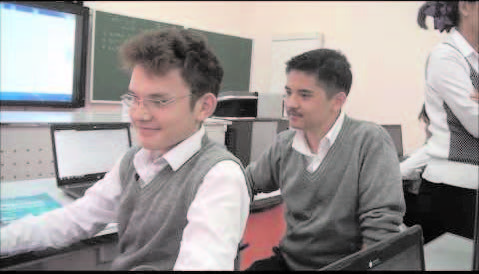ASTANA (TIP): Nursultan Nazarbayev, the only president Kazakhstan has ever seen since its birth some 24 years ago, won another mandate on April 26 by a margin that’d make words like ‘landslide’ and
‘overwhelming’ sound listless and feeble. He won 97.7% of the vote. That too in an election where 97% of those on the voter rolls turned out.
Two others gave Nazarbayev company in this rather stately electoral no-contest — a communist and a trade unionist. Trade unionist Kusainov Abylgazy went home with 0.7% of the vote. Communist Turgyn Syzkykov had his bag slightly fuller with 1.7% of the vote. Both later acknowledged only Nazarbayev had the stature to be president.
Kazakhstan’s “light” Nazarbayev rose from very humble beginnings to first become a steel plant worker, then the Soviet-ruled region’s top communist leader and the country’s first president after independence. He has always been at the helm. On April 27, he walked into a stadium raining confetti and bursting with roars of ‘Nursultan-Kazakhstan’. Wrapped in sea-blue and gold, this Nur Otan Party victory show was a full house. Amid much singing and dancing, Nursultan proclaimed his determination to take his country to the next level of development. For him it was a proud moment, for his people had backed him to the hilt.
In the crowd, head covered in a blue party cap and waving a flag was young Imran. He loves Nazarbayev. “What style,” he gasped. Broad-shouldered Nazarbayev, natty in a smart suit, stepped on to the blue carpet. A golden scarf wrapped around his shoulders, the man of the moment was all about success and command. He waved, reached out, waded into crowds, did a quick jig and shook a leg as the music played. He was then on stage exhorting the nation to forge ahead — a show of showmanship.
Imran also said he loved Bollywood stars. Malika, his course mate at the Eurasian University chipped in: “I love Shah Rukh Khan.” Even then the big Bollywood sultan isn’t a patch on their sultan — Nursultan. Once again, the roar went up: “Nursultan-Kazakhstan”, more confetti showers, more blaring music.
The previous day, April 26, booth 81 in a central Astana neighbourhood had opened early for voting. On ordinary days, this glitzy structure, also called a palace, is home to children. They come here to learn music, take part in sports, learn other skills. That day, it was all agog. Nazarbayev would vote here. A day before the vote, a campaign ban —called day of silence in these parts —had kicked in. TV wasn’t beaming anything on elections.
At booth 81, on the courtyard two big boxes made of transparent plastic stood on lovely expensive carpets. Husbands, wives, lithe women, athletic men, toddlers covered head to foot in woolens, elders, security men and women milled around. Unlike back home, where even in non-VIP booths, an air of grimness hangs over polling stations, this place was a breeze. Policemen weren’t making a clumsy display of guns.
Past a metal detector and the mandatory frisking, it’s a short walk to the arena. Rolls are checked, voters given the ballot, they walk into an enclosure, stamp it and slip it into the big plastic box on the carpet through a narrow slit. Voting here closes at 8 pm. It’s unhurried. Children scamper around unafraid, walk up to securitymen and tug at their uniforms, slip into enclosures.
Gulnar and her husband had brought their two children along. “I vote communist,” she said pointing to a miniscule photograph of Syzdykov, the communist in the race. Really? That’d make Gulnar a rare specimen of dissent — one of the barely-there 3%that voted against the great leader.
In no time she drowned in a circle of TV booms and microphones as reporters quizzed her on her choice.
Across the corridor, booth 81 was readying for Nursultan to show up. That’s the biggest photo-op for journalists here, the must-capture moment. Minutes later, smart securitymen — they look the same everywhere, clones of Obama’s secret service guards — burst into the hall. Nazarbayev’s here. All of 74, trim and straight, a slight smile flashes on his face. He is fit, has a tight jaw but somehow has an old soviet air about him — of being a cut above the rest, dripping dignity, in total control, creator of a nation, a man sitting on a mountain of success.
He acknowledges the crowds, waves at them, walks into the arena, follows the process, poses for shutterbugs and showtime’s over. He’s then escorted into an enclosure where he addresses reporters. His voice deep and throaty, Nazarbayev speaks haltingly, carefully picking his words. He addresses reporters first in Kazakh, then Russian.
Translators tell me he spoke of progress, the next level of consolidation and development. He takes no questions, waves again and walks out.
